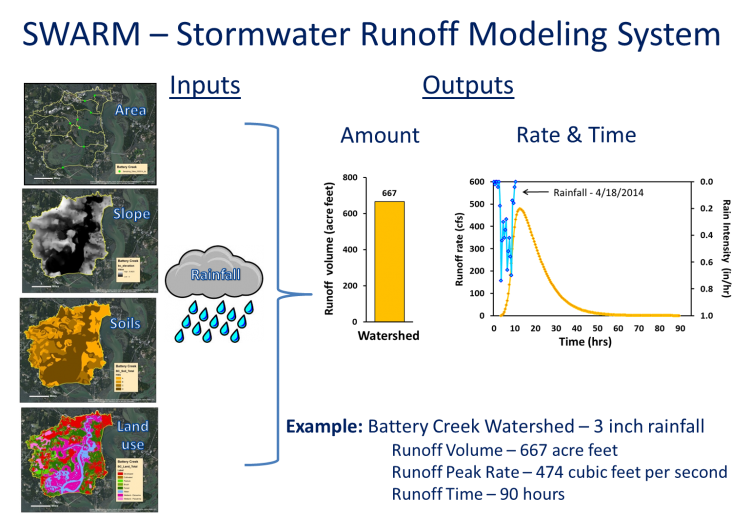In order to improve coastal resilience, scientists used the SWARM modeling system to investigate runoff in certain watersheds in South Carolina (SC). Research results from this collaborative project to prioritize and model runoff volume sensitivities of tidal headwaters were presented to the Beaufort County Watershed Advisory Committee (WAC) on September 10, 2015. This modeling work will improve management of development by including impacts of climate change which ultimately translates into improved coastal resilience.

Reed Armstrong of the South Carolina Coastal Conservation League and WAC member stated: ‘The SWARM modeling results reported to the Beaufort County Watershed Advisory Committee have direct application to our efforts to both prevent further degradation and the restoration of water quality in our waterways. The modeling results can also be used to identify the specific and most appropriate BMPs [Best Management Practices] for stormwater management for each of our watersheds to meet these objectives.’ This project was a collaboration ofNCCOS at Hollings Marine Laboratory, the SC Department of Natural Resources, the University of SC Beaufort, and the SC Sea Grant Consortium in continuous collaboration with County stormwater managers and interested citizens.
For more information about this project or SWARM, contact Anne.Blair@noaa.gov.
